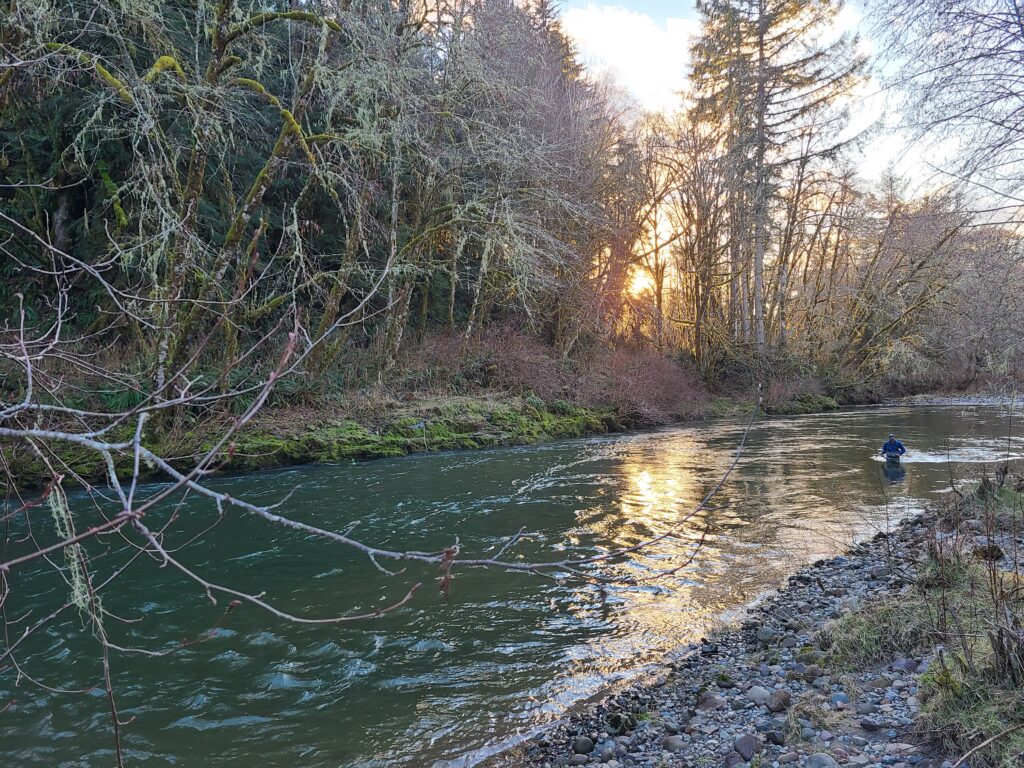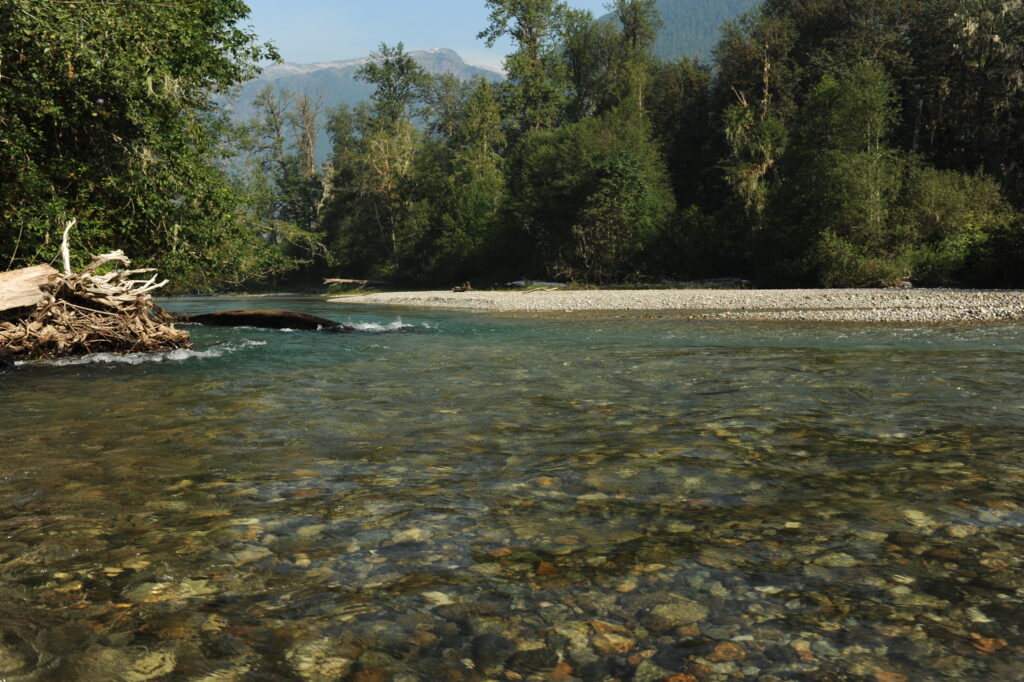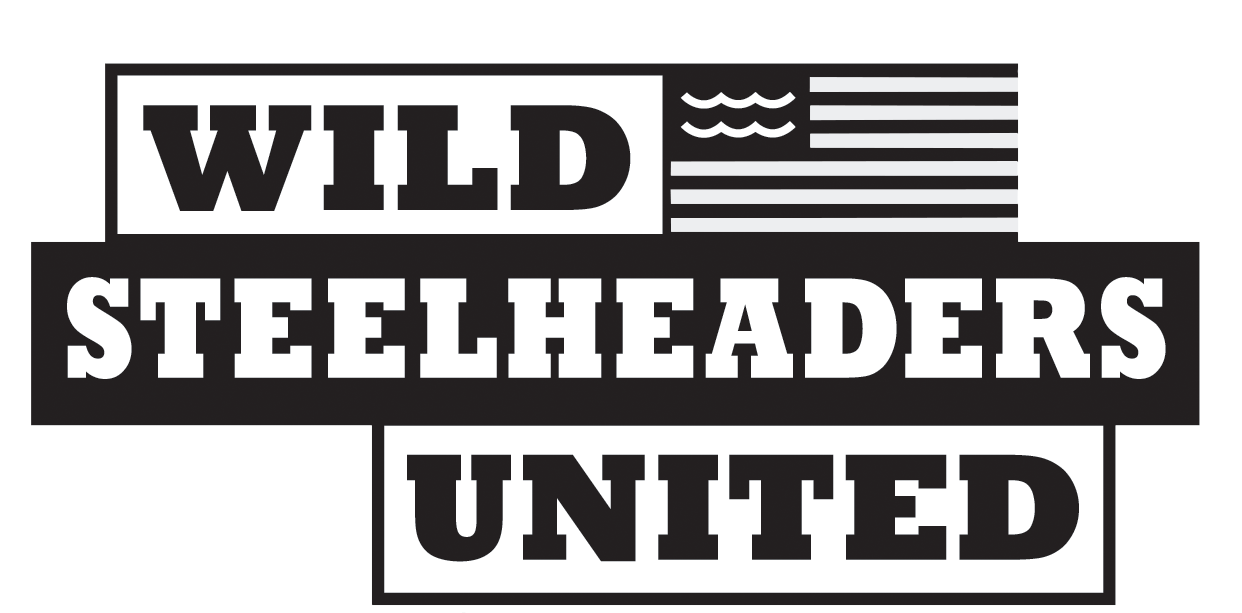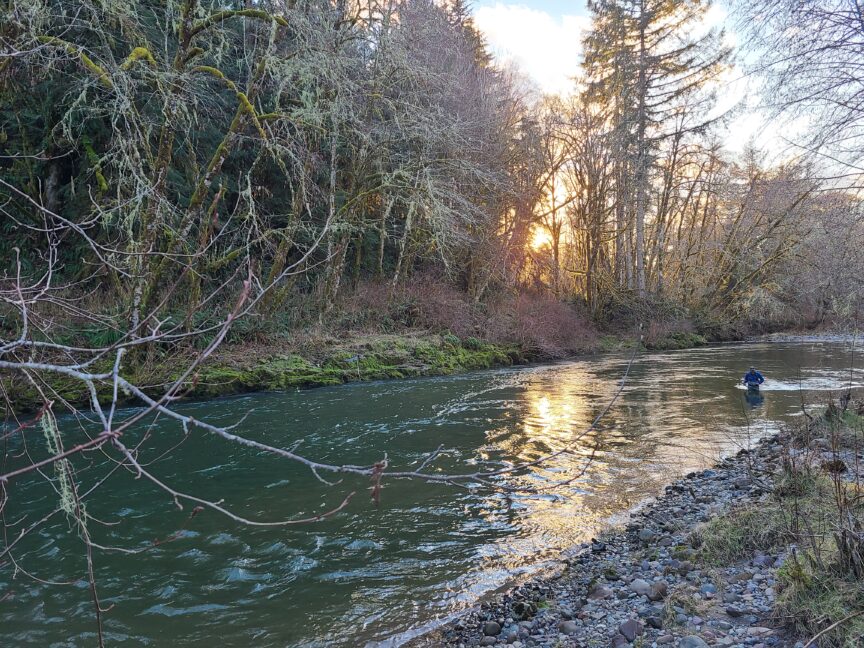
Outstanding Resource Waters designations will aid in steelhead recovery and preserve clean, cold water
Few habitat factors are as important for wild steelhead as clean water. This Christmas, steelheaders in Washington received a nice gift of clean water from the state’s Department of Ecology: designation of three river segments as Outstanding Resource Waters (ORWs).
ORW’s are water bodies with exceptional water quality, biological, cultural and recreational values. States have authority under the federal Clean Water Act to apply this designation to permanently protect such resources. Increasingly, many states are using this designation to better conserve deserving freshwater resources.
Washington’s new ORW designations mean that over 900 miles of the Green, Napeequa, and Cascade rivers will continue to provide cold, clean water for fish and people. These are the very first waters in Washington to receive this protection.
We’re especially pleased about the designation for the Green River. The Green was among the initial group of rivers in the Lower Columbia River basin to be designated as a wild steelhead gene bank by the Washington Department of Fish and Wildlife in 2013. ORW designation also adds complementary protections needed to protect this river’s vital habitat and steelhead population from mining threats.

Above: The Cascade River near its confluence with the Skagit River. Image: Thomas O’Keefe/American Whitewater
Many stakeholders contributed to the effort to gain the new ORW designations. Sportsmen, whitewater enthusiasts, hikers, conservation and environmental groups, Tribes and local governments, and the Governor’s office – all worked together and supported the Department of Ecology’s action.
Other wild steelhead states such as Oregon and Idaho have made these designations in recent years. Oregon designated Crater Lake, Waldo Lake in the High Cascades, and the North Fork of the Smith River as ORWs. Communities who derive their drinking water from the NF Smith and anglers throughout the region strongly supported this designation, especially since a foreign mining company wanted to develop a large nickel mining operation in the headwaters of this drainage.
Climate change, catastrophic wild fire, logging, mining, agriculture, urban sprawl, poorly maintained roads — all can degrade water quality. It’s vital that we act whenever possible to better protect our precious few remaining wild steelhead waters. Making use of all of the tools in in our toolbox, including ORW designations, must be a priority for all who care about wild steelhead.
Read more about Washington’s Outstanding Resource Designation process.


